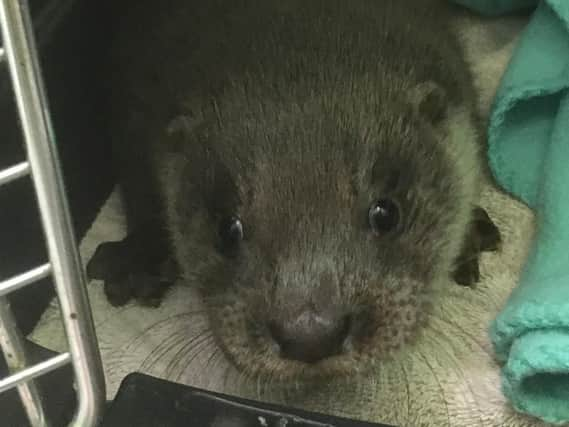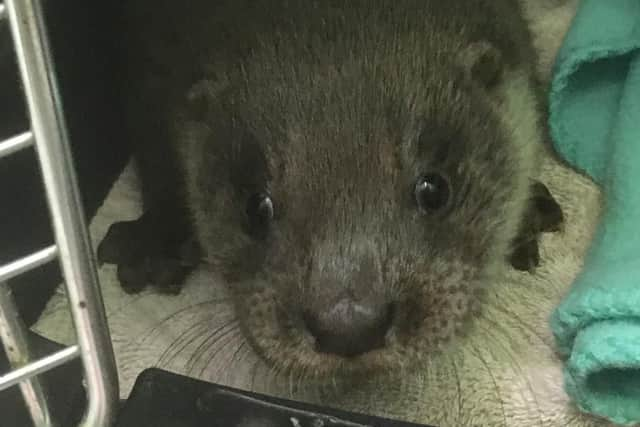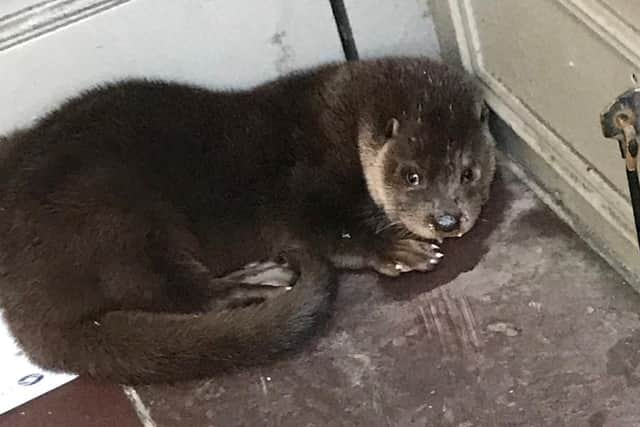Otter pup found huddled in Mansfield shop doorway to start new life in wildlife centre


The four-month-old cub was found earlier this month in Church Street, Mansfield, by a member of the public, looking frightened.
They managed to get the pup into a cat carrier and took her to a vet, who contacted the RSPCA.
Advertisement
Hide AdAdvertisement
Hide Ad

Inspectors Deborah Scotcher and Becky Lowe collected the otter and transferred her to the RSPCA’s Stapeley Grange Wildlife Centre, in Nantwich, Cheshire, where she will be cared for at least eight months before being released back to the wild.
Insp Scotcher said: “The town centre was very busy so the poor pup must have been terrified. We can only assume that she was moving with her mum along the River Maun when they got separated, and somehow the pup ended up amongst all the shops.
“There is so much traffic and it’s such a built-up area, she is very lucky to not have been hit by a car.”
Advertisement
Hide AdAdvertisement
Hide AdAt only four months old, the otter pup is too young to be released back to the wild so she will be rehabilitated at Stapeley Grange until at least October.


In the wild, otter cubs stay with their mum for around 12 months until they are big enough to be independent and so when rehabilitating an otter pup the RSPCA will aim to release them back into the wild when they are at least a year old.
As otter cubs are at the centre for a long time, they are given names - with this pup being named Olivia.
She is currently on a diet of 200g of squashed trout a day.
Advertisement
Hide AdAdvertisement
Hide AdLee Stewart, manager of Stapeley Grange, said: “We now have six otter pups at the centre and an adult that is about to be returned to the wild so we are getting through a lot of expensive trout. Anyone wishing to help fund our otters can do so by donating on our just giving page, every penny helps.
“Many of the otter pups require hand feeds when they arrive but as soon as we can we try to get them onto fish to avoid any kind of imprinting. It is essential we keep all our otters wild during the rehabilitation process.
“Olivia was still very scared when she came into us but she is being monitored closely by the staff. Like all the otter pups that come into us, she has a long road ahead of her before we can release her back to the wild.”
Up until the 1970s, otter populations in the wild were struggling due to chemicals such as DDT getting into river systems. Since the ban on use of such chemicals in the 1980s and the cessation of hunting of otters in the 1970s, when the otter population was at its lowest in the UK, otter populations have been recovering well.
Advertisement
Hide AdAdvertisement
Hide AdAs their numbers have been steadily rising they have made a comeback in most counties in the UK. As a result, Stapeley Grange, along with the RSPCA’s other wildlife centres, have seen an increase in the number of otters which come into the centres.
Otter cubs are particularly vulnerable during storms as they can become separated from their mum, who they depend on for survival.
In 2018, Stapeley Grange took in 11 otter pups - which is the most it has admitted in a single year since opening in 1994.
If you see an animal in distress you can ring the RSPCA’s 24-hour cruelty line on 0300 1234 999. The RSPCA does not recommend the public handles otters as they are wild animals which can bite and scratch when frightened, particularly if they are injured. Please contact the RSPCA on the number above, and monitor the animal until help arrives.